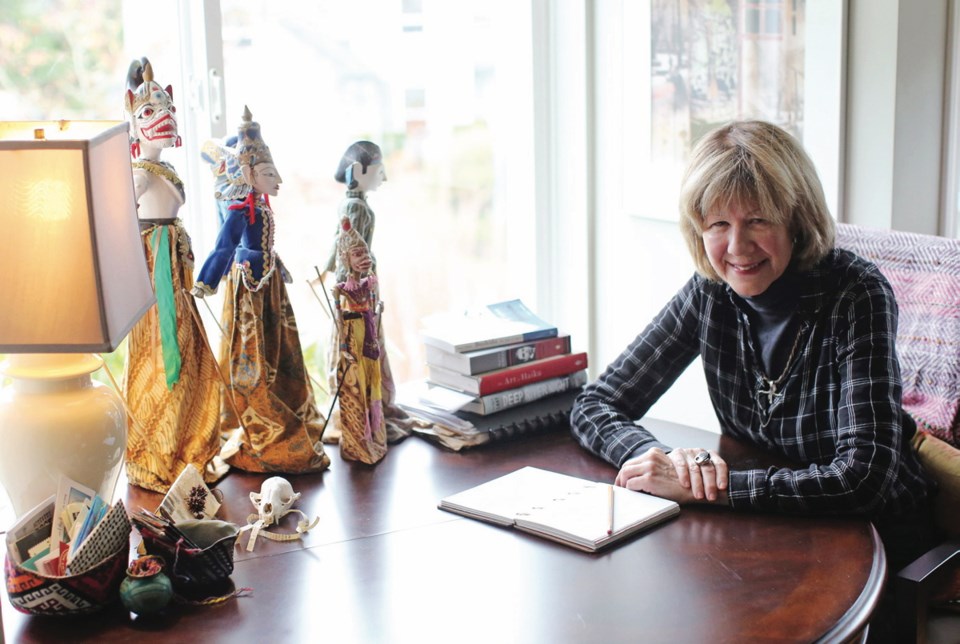The Times Colonist Solstice Poetry series concludes today with a poem from Terry Ann Carter.
Carter’s poem For the White Bird was inspired by a friend’s dream about a white bird in his pocket, and the purchase of a children’s book on Matisse’s cutouts.
Carter’s poem is the fifth and final of the series, which began Wednesday with Philip Kevin Paul’s work Such a Tiny Light. Yvonne Blomer, Victoria’s outgoing poet laureate, followed Thursday with Winter Solstice. Ali Blythe’s poem, Swan, was next and Anita Lahey’s poem Writer’s Promise appeared Saturday.
A poet and paper artist, Carter is the author of seven collections of poetry and six haiku chapbooks. TOKAIDO (Red Moon Press, 2017) won a Touchstone Distinguished Book Award.
For the White Bird
by Terry Ann Carter
Coming of winter is like this: the memory
of a white bird in a man’s pocket.
Light is a word too large to be contained.
One can never get enough. Jung says
the dead assign their unfinished work
to the living. Tea masters knows this season of Ro
each charcoal placed for the kettle’s heat.
And the December moon — will it give us pleasure?
A bird’s small beak and a bird’s
small breath, warm against a heart.
- - -
About Terry Ann Carter
A poet and paper artist, I am the author of seven collections of poetry and six haiku chapbooks. TOKAIDO (Red Moon Press, 2017) won a Touchstone Distinguished Book Award. I participated in the Basho Festival (Ueno, Japan) in 2002 and a renku (linked haiku) reading (2003) at the Tenri Cultural Center in New York City. I have given small bookmaking workshops all over the world. In 2016, I was a community fellow at the Centre for Studies in Religion and Society at the University of Victoria, exploring the Buddhist influence on English-language haiku written in North America. As past-president of Haiku Canada, and founder and facilitator for Haiku Arbutus Study Group, here in Victoria, I continue to give lectures and workshops on Japanese literary forms.
For the White Bird is a quiet poem (like early morning frost) inspired by two events: a friend’s dream about a white bird in his pocket, and the purchase of a children’s book on Matisse’s cutouts — a picture of a white bird on the first page. From there, I began to think about the imagery I might use to express the smallest amount of warmth on a cold winter day. With white birds on my mind, I came to a bird’s small breath. The season of “Ro” is a “winter style” of tea preparation for the tea master.



